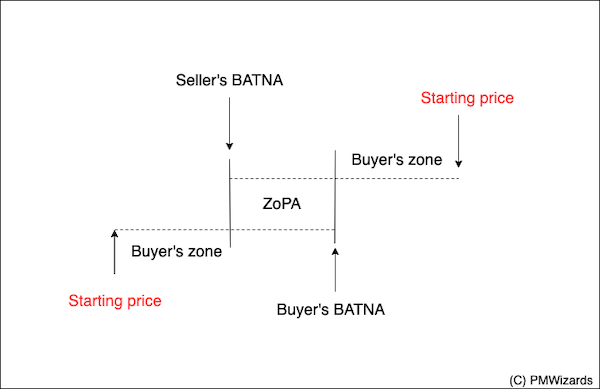An opportunity to exchange information and learn ways to a win-win outcome
Principled-based negotiations (Fisher 2012) is a technique that has proven much more effective than the traditional position-based negotiations where the two sides bicker over a single point (price, salary, etc…).
In this negotiation paradigm, both parties consider it important to reach a mutually satisfying (win-win) solution. The key idea is to consider other dimensions than only “price” or “salary”. Consider the interests of the other party before proposing alternatives.
For a buyer, other dimensions can be guaranteed, quick access to the product or good support services. For a candidate employee, other dimensions can be duration of vacations, fringe benefits in terms (phone, car, laptop) and flexibility in the pay package to choose between cash and options. There are two concepts that must be clear: BATNA and ZOPA.

The BATNA or Best Alternative To Negotiated Agreement provides the negotiation boundaries. The side with more power to impose conditions on the other is the one with more alternatives. If a company doesn’t hire a candidate, how much will it cost to find another good candidate? If the seller doesn’t sell a product to a specific buyer, how much could he get in the market?
When you know the market boundaries, you can decide whether an agreement is possible. The Zone Of Potential Agreement or ZOPA is the negotiation space, the sooner it is identified the more effective will the negotiation be. If you identify the other side is rigid and unwilling to collaborate, without a clear ZOPA, then the best is to save time by walking away.
Back to Leadership.